Question And Answer
Publications
Articles, publications, books, tools and multimedia features from the U.S. Institute of Peace provide the latest news, analysis, research findings, practitioner guides and reports, all related to the conflict zones and issues that are at the center of the Institute’s work to prevent and reduce violent conflict.
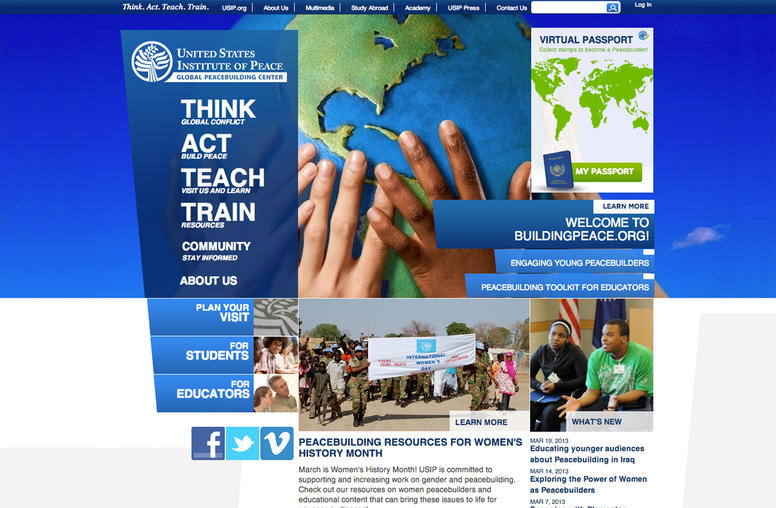
USIP Extends its Engagement of Teachers and Students with New Online Resources
As part of its mission to educate key audiences about peacebuilding and conflict management, the United States Institute of Peace (USIP) in February activated a virtual Global Peacebuilding Center, providing younger audiences and educators with substantial peacebuilding resources and activities.
Making Sense of the U.N. Impasse on Syria
Abiodun Williams discusses the U.N. Security Council's rejection of a resolution on the violence in Syria and its implications for "Responsibility to Protect." Williams is acting senior vice president of USIP’s Center for Conflict Management (CCM), where he leads its work in conflict zones such as Afghanistan, Iraq, Pakistan, the Middle East and North Africa.
Q&A: The Risks of Isolationism
USIP’s Steve Hadley, former national security adviser to President George W. Bush, discusses the risks of isolationism, and why the U.S. must remain engaged in the world, despite domestic economic constraints.
Assessing the Impact of Israeli-Iranian Tensions
Daniel Brumberg is senior adviser to USIP’s Center for Conflict Analysis and Prevention, where he focuses on issues of democratization and political reform in the Middle East and wider Islamic world. He is also an associate professor at Georgetown University. He was previously a Jennings Randolph senior fellow at the Institute.
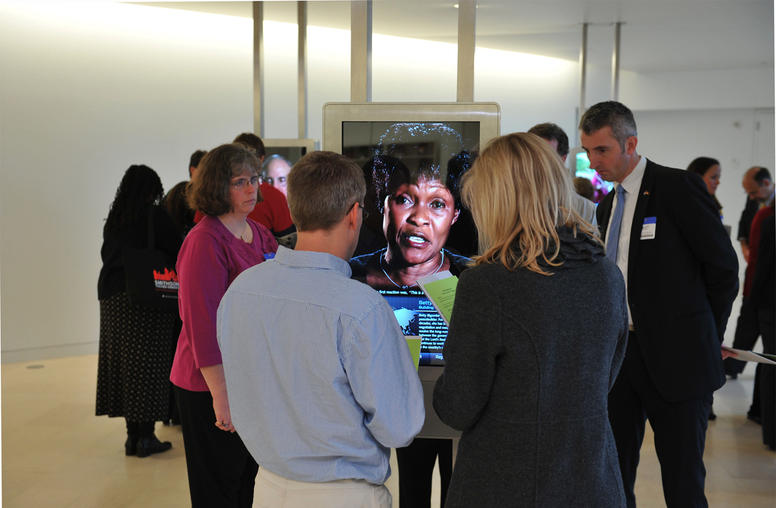
Teachers Learn to Take Peacebuilding to the Classroom
The Peacebuilding Toolkit for Educators was shared with a group of teachers from across the U.S. during a lively program at USIP headquarters, intended to give educators a primer on peacebuilding with the hope that they will carry those lessons back to the classroom.
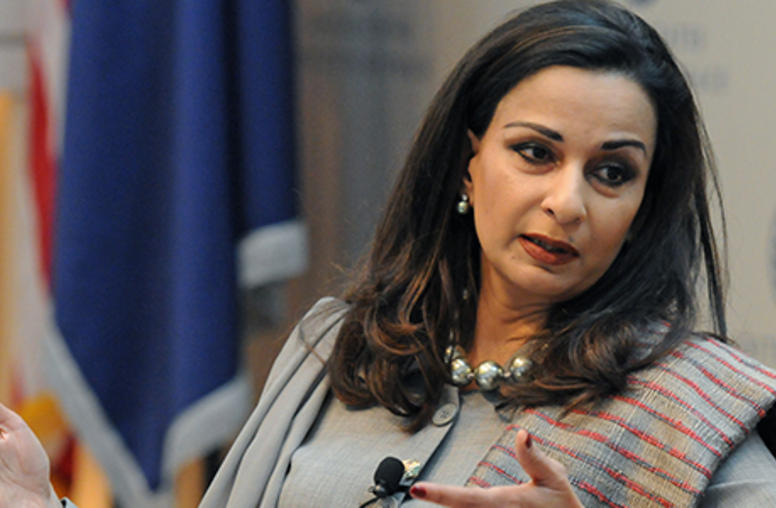
Amb. Sherry Rehman: The U.S. and Pakistan – Time for a Reset
Newly appointed Ambassador of Pakistan to the U.S. Sherry Rehman made her American debut as ambassador at USIP Feb. 15 with a pointed speech about empowering women, fighting extremism and the state of the U.S.-Pakistani relationship. She hinted at the need for greater trade ties, and continuing civilian and military assistance.
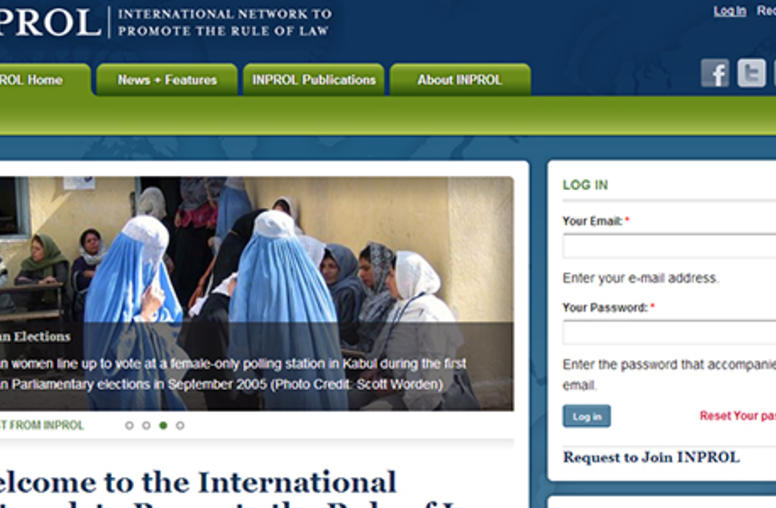
USIP and Partners Re-launch International Network to Promote the Rule of Law
The U.S. Institute of Peace (USIP) and its partners this month have re-launched a unique, web-based global network of rule-of-law professionals.
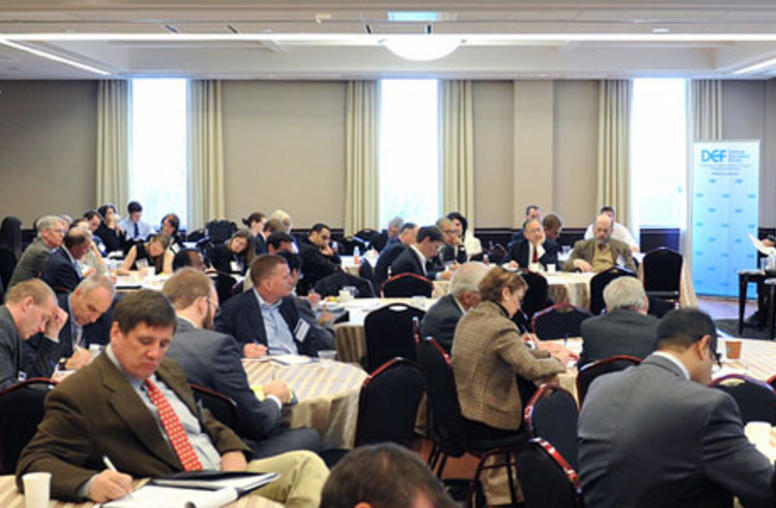
Challenges of Reconstruction after Arab Uprisings Discussed at USIP-ROA Briefing
U.S. officials will need to show both humility and patience for years to come as they try to assist the nations of the Middle East and North Africa that have cast off decades-old authoritarian governments and are only beginning a rough and uncertain transition in their political systems and economies, a Capitol Hill audience was told at a February 16 briefing organized by the U.S. Institute of Peace (USIP).
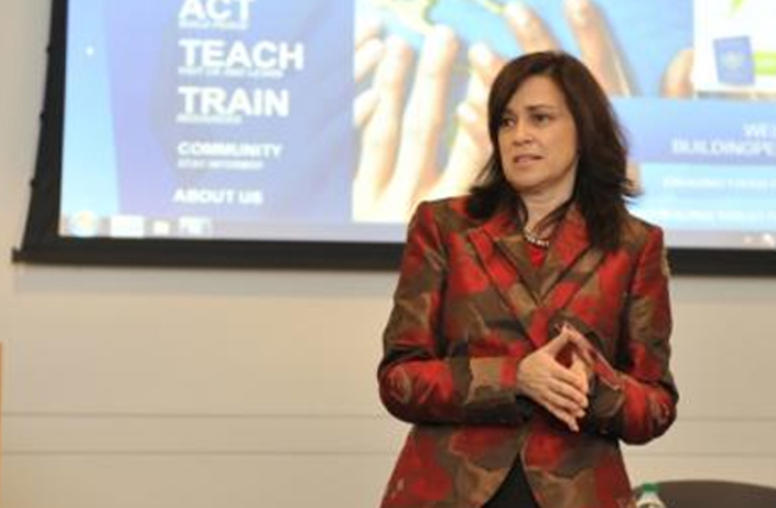
USC Students Visit USIP, Talk Public Diplomacy
USIP's Tara Sonenshine talks with a group of students studying public diplomacy from USC.
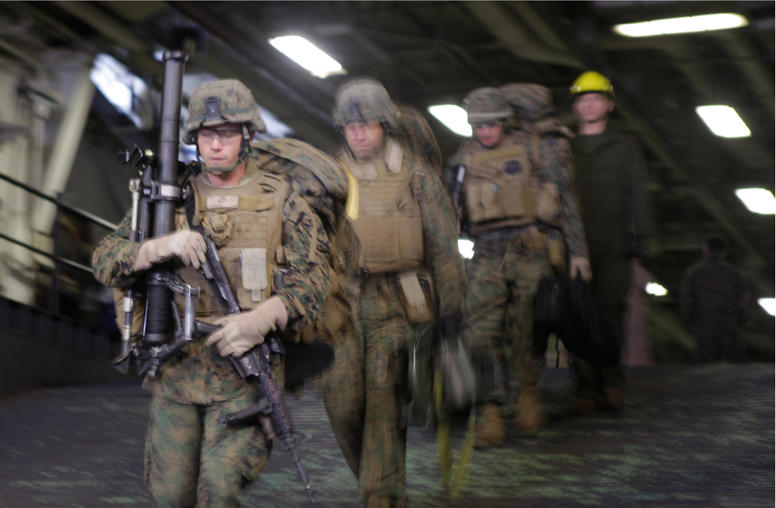
Strengthening the Civilian-Military Link: USIP and Navy-Marine Corps Coordination
The role of the Navy and Marine Corps is critical to the growing importance of the Asia Pacific region in national security strategy. Recently, conflict management and peacebuilding experts from the U.S. Institute of Peace participated in the Navy’s biggest amphibious exercise in a decade, Bold Alligator, as part of USIP’s expansion of civilian-military cooperation and training.